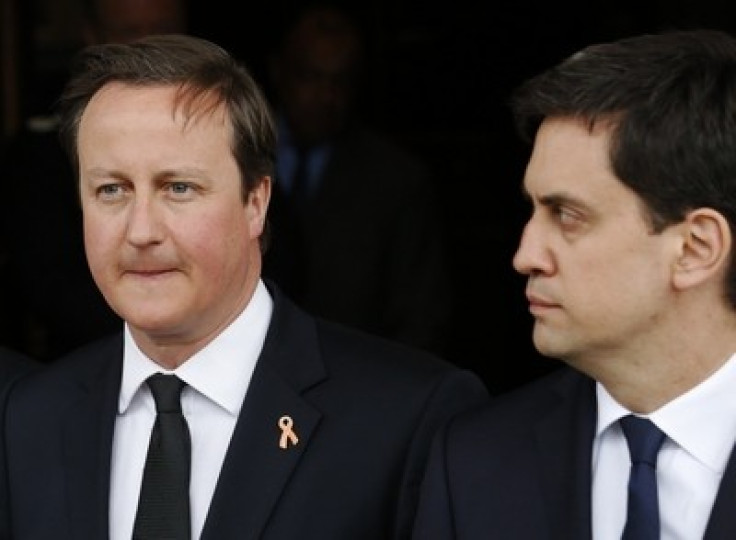Ed Miliband Accuses David Cameron of Gutter Politics and Calls for Clean Election

The next election is going to involve the dirtiest campaigns seen in the UK for decades. We know this because politicians on all sides are insisting they want the cleanest possible election.
Labour leader Ed Miliband has already accused his enemies of planning to fight dirty when he took on the Daily Mail over its attacks on his Marxist academic father, Ralph, whom it accused of "hating Britain".
Now Miliband has accused David Cameron of demeaning the office of prime minister by smearing and mud slinging over the so-called "Crystal Methodist" affair, which continues to buffet Labour.
"This is a Conservative party preparing to fight the dirtiest general election campaign that we have seen in this country for over 20 years," he wrote in the Independent on Sunday.
"David Cameron cannot resist a low blow when the British public craves a politics on the high ground. His main political strategy is now to sling as much mud as possible in the hope that some of it sticks. When he does so, he demeans his office."
Labour, he insisted, will not resort to such tactics because: "The next election is far too important to be conducted in the gutter."
Shadow home secretary Yvette Cooper continued the theme, telling the BBC's Andrew Marr Show: "It is a return to the nasty party, I don't think John Major would ever have done this, I don't think Margaret Thatcher would ever have done this, this is a different style of politics, this is David Cameron's approach."
But education secretary Michael Gove rejected the notion the Tory attacks were smears, saying: "I think Ed Miliband wants to fight a clean election campaign...I know David Cameron does."
And Tory party chairman Grant Shapps claimed Miliband's remarks were a tactic to avoid serious questions over his links with the crisis-hit Co-op bank and its disgraced former boss Paul Flowers.
Only one thing is certain in all this. When asked, voters overwhelmingly say they want politics and political campaigns to be "clean". But it is a reflection of the current view of Westminster that they are not holding their collective breath.
Memories of Labour's Damian McBride and the shadowy briefing war between Gordon Brown and Tony Blair are still too fresh in people's memories.
Equally, though, history suggests that "going negative" during election campaigns often works, as Miliband's reference to the 1992 campaign, which saw a particularly personal campaign against Labour's Neil Kinnock, suggests.
But there are huge dangers for Labour in this apparently honourable demand for a clean campaign. Largely because it is almost guaranteed to come back and bite Miliband where it hurts.
Former Tory prime minister Sir John Major once made a fateful call for a "Back to Basics" programme. He meant on the economy, education and other policies but the slogan was immediately interpreted to mean a return to traditional moral values.
His party was then engulfed by a series of ministerial sleaze scandals, deftly played by the Labour party at the time, which did him huge and lasting damage.
So, while most would instinctively support Miliband's demands for a clean campaign, he and his party's behaviour will need to be above any possible reproach or misrepresentation. Any hint of negativity or personal attacks will immediately be seized on and thrown back in his face.
Perhaps Miliband can pull it off and show that a clean, positive campaign can work and encourage others to follow the same route.
It is a brave time to engage in such an experiment.
© Copyright IBTimes 2024. All rights reserved.









